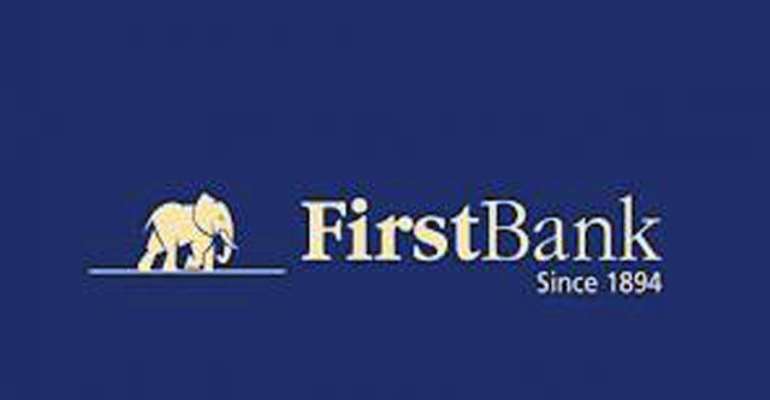Renaissance Capital picks First Bank, Zenith Bank, GTB as preferred stock

The Renaissance capital picked First Bank Holdings, Zenith Bank and Guaranty Trust Bank (GTB) as their preferred stocks against the background of regulatory headwinds in the Nigerian banking sector.
The choice of the emerging market investment bank is predicated on its perceived ability of the chosen banks to weather the stifling measures being pursued by the Central Bank of Nigeria.
Renaissance said that in the given environment, it is best to stick with the bigger, more liquid banks with generous balance sheets.
'Our top picks in Nigeria are First Bank Holdings (BUY, TP NGN20.5/share, CP NGN16.3/share), Zenith Bank (BUY, TP NGN25.3/share, CP NGN21.3/share) and GT Bank (BUY, TP NGN29.1/share, CP NG26.2/share),' the investment bank's analysts said.
This coming just a few days after JP Morgan rooted for United Bank for Africa (UBA) and GTB as its 'preferred stocks in the Nigerian banks space.'
According to the global bank, both banks offer an attractive 45 per- cent potential upside to their December 2014 fair values - among the highest within the CEEMEA banks currently. CEEMEA is an acronym for Central and Eastern Europe, Middle East and Africa. It is used by investment analysts to refer to reports that cover economies or businesses in this region.
'While GTB's valuation (2.0x14E t.book) is at a 33 per- cent premium to the CEEMEA peer average (1.5x 14E), we estimate its offers roughly 60 per cent higher tangible ROE vs. The CEEMEA average (29 per cent 14E in GT - the highest in CEEMEA banks - versus 18 per cent 14E CEEMEA) and nearly double the dividend yield.
'UBA on the other hand offers a 30 per cent higher tangible ROE (of 23 per cent in 14E) on our estimates vs. CEEMEA banks average and a significantly higher dividend yield (10 per cent) for a 33 per cent valuation discount (1.0x14E tangible book) vs. CEEMEA banks.'
Refreshing its ratings and views on shares of four Nigerian banks within its coverage, JP Morgan upgraded Guaranty Trust Bank Plc (GTB) and United Bank for Africa Plc (UBA), from Neutral to Overweight.
FBN holdings and Zenith Bank Plc were on the other hand downgraded. While FBN Holdings was downgraded to Neutral from Underweight, Zenith was downgraded to Overweight from Underweight.
But it should be noted here that Renaissance, which is one of the dominant in the Nigerian market space, naturally evinces better understanding of the dynamics of the market than some offshore analysts probably employing proxies.
Renaissance Capital analysts in a review of recent designation of the eight banks as Systematically Important Banks (SIBs), which would have systemic impact if they fail, weighed the likely impact on the banking system.
CBN under the SIB scheme is said to have listed First Bank of Nigeria, United Bank for Africa, Zenith Bank, Access Bank, Ecobank Nigeria, Guaranty Trust Bank, Skye Bank and Diamond Bank.
According to the Renaissance capital, the list was determined by assessing four criteria: 1) size, as defined by total assets, 2) interconnectedness, as defined by interbank exposures and volumes of other intra industry assets and liabilities, 3) substitutability, as defined by ease with which the institution can be replaced as a financial services provider and 4) complexity, as defined by how difficult it would be to liquidate the institution.
The top eight banks currently account for over 70% of the industry's total assets.
The current capital adequacy ratio (CAR) in Nigeria is 10% for local banks and 15% for banks with international operations. In terms of capital split, banks are allowed to hold Tier 2 capital of up to 100% of Tier 1 capital. In other words Tier 2 capital can comprise up to 50% of total qualifying capital.
The proposed changes for SIBs would mean a minimum CAR level of 15%, irrespective of whether a bank is deemed local or has international subsidiaries.
In addition, Tier 2 capital would be capped at 50% of Tier 1 capital, hence at 25% of total qualifying capital.
The analysts noted, 'The draft report also mentions that SIBs would be required to provide an additional 1% of capital as a Higher Loss Absorbency (HLA) charge, in addition to the prescribed minimum CAR.
'According to the draft, the aim of the HLA is to ensure that a large portion of these banks' balance sheets are funded by permanent capital, and to deal with cross-border risks. This additional charge can only be funded by Tier 1 capital.
' Should this be implemented, we think it would effectively raise the minimum CAR to c.16%, hence placing further strain on Ecobank Nigeria, Sky, Diamond and even Access (which recorded a CAR of 18% at 9M13).'
On the liquidity side, the Renaissance Capital analysts also foresee challenges for some banks.
Under the proposed SIB which is in draft stage, banks s would also be required to hold more liquid assets and meet a liquidity ratio of 5% above the minimum requirement (currently set at 30%).
They foresee no problems for banks like Zenith, which has the highest liquidity ratio at 63.1% at 9M13, followed by First Bank at 62.7% at 1H13 (First has not yet reported 9M13 results).
But they think that for banks on the other end of the spectrum like Skye at 31.5% and Diamond at 36.7%, they might have to raise their liquidity.
